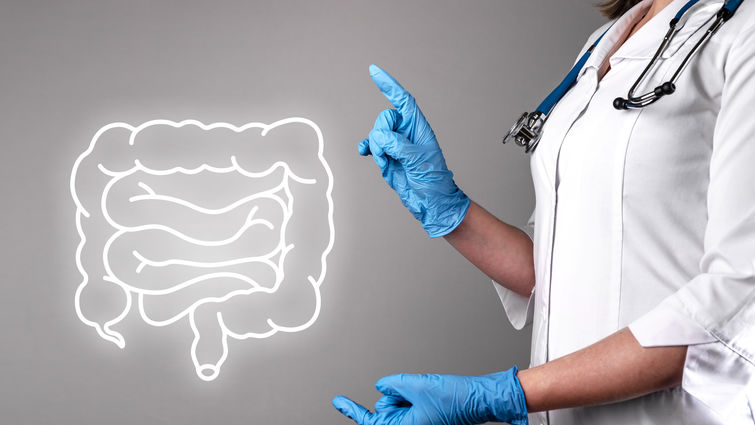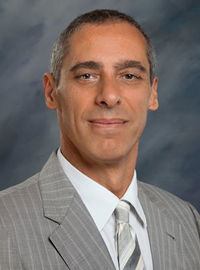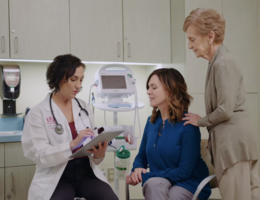

Colorectal cancer is one of the most deadly and preventable diseases, says Fabrizio Luca, MD, surgical oncologist and chief of the colon and rectal surgery division at Loma Linda University Cancer Center. Unfortunately, about 1 in 3 people in the country who should get tested for colorectal cancer have never been screened, according to the American Cancer Society. Meanwhile, the National Cancer Institute states that if all people over 50 years of age were screened, mortality rates from colorectal cancer could be reduced by 60%.
Read: How the third most dangerous cancer is also one of the most preventable
Ample evidence demonstrates the significant role screening plays in the prevention and early detection of colorectal cancer, Luca says, but some concerns about the screening process may hold people back from safeguarding their health. For March’s Colorectal Cancer Awareness Month, Luca addresses four of the most common screening-related concerns:
Concern: If I get screened, I might find out I have cancer. I am afraid.
Luca: As with many other medical exams, you may fear learning the findings from a colorectal cancer screening. However, the purpose of undergoing screenings such as colonoscopies starting at age 45 is so that you and health professionals can keep a close eye on your colon health. If you do have a tumor, the screening can detect it while it is still small or early-stage and curable. Most of the time, screenings detect tumors before they need to be treated with a surgical operation.
Also, consider that it is less scary to find a small, treatable tumor now that can be easily cured than to put off screenings only to develop symptoms and discover advanced cancer that is no longer so easily curable.
Concern: I am nervous about what happens before and during a colonoscopy.
Luca: During a colonoscopy, physicians use a thin, flexible tube with a tiny camera attached that is inserted in the rectum to look inside the colon and detect any polyps — abnormal blub-like growths on the inner tissue lining of the colon or rectum that can turn into cancer over time. Colonoscopies are done under sedation, so many patients don’t even remember their exam, and it is not painful. I didn’t remember my own colonoscopy; I just remember physicians saying everything went well.
Additionally, if you are concerned that the process is awkward or embarrassing, remember that this is a routine exam and gastroenterologists have learned how to make you comfortable throughout the process.
In fact, many patients find that most of the discomfort comes from the bowel preparation before the colonoscopy, which involves drinking a lot of fluid the day before. Yet if you consider that a colonoscopy is only needed every 5–10 years, it is worth doing.
Concern: But I’m healthy. I am not at risk for colon cancer. So why take the test?
Luca: Colorectal cancer is the third most common cancer in the United States, and in the last three decades we have seen the number of cases in people under 50 years old increase. Everyone is at risk for colorectal cancer, not just specific high-risk populations. 75% of colon cancers arise in patients with no lifestyle or genetic risk factors at all.
Read: Four things to know about the third-deadliest cancer
Screenings are meant to discover the cancer when it is still small or not even a cancer yet, such as a benign lesion. You don’t want to wait until you feel symptoms, which are more likely to appear during the later stages of disease when the cancer has grown and become more difficult to treat.
Concern: I would prefer not to do a colonoscopy, so there is no way for me to get screened for colorectal cancer.
Luca: There are other safe and effective screening methods, like fecal occult blood tests, which require sending a stool sample to a lab for analysis yearly.
Colonoscopies, however, remain the gold standard. Whereas most cancer screening methods might be able to detect cancer and subsequently require a separate surgical procedure for treatment, a colonoscopy allows physicians to diagnose and eradicate potential or early-stage cancer simultaneously in one visit.
A colonoscopy can also find small lesions before they even test positive on a fecal blood test. Other screening methods like the fecal occult blood test are less precise and sensitive than colonoscopy but still better than nothing.
Overall, getting screened for colorectal cancer offers many benefits and can only help you safeguard your current and long-term health.
Read: Three lifestyle choices to give you an edge over the third most dangerous cancer
Talk to your primary care provider about colorectal cancer screening options for you. If you or a loved one is diagnosed with colorectal cancer, you can trust the experts at Loma Linda University Cancer Center to provide the personalized care you need. Learn more about the program online or call 800-782-2623.
Meet Our Providers
Fabrizio Luca
Chief of division of colon and rectal surgery
Specialties: Colon and Rectal Surgery
Learn more about this provider


